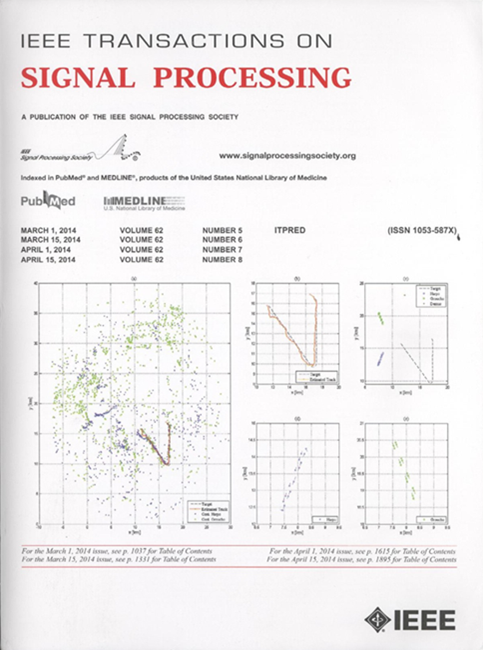Multiple-Time-Slot Multiple Access Binary Computation Offloading in the $K$-User Case
IF 4.6
2区 工程技术
Q1 ENGINEERING, ELECTRICAL & ELECTRONIC
引用次数: 0
Abstract
When multiple devices seek to offload computational tasks to their access point, the nature of the multiple access scheme plays a critical role in the system performance. For a system with heterogeneous tasks, we adopt a time-slotted signaling architecture in which different numbers of devices transmit in each slot, subject to individual power constraints. We consider the problem of jointly selecting the devices that will offload, along with optimizing their communication resources (their powers and rates in each time slot, and the time slot lengths) so as to minimize the a weighted sum of the energy expended by the devices. We employ a customized tree search algorithm for the offloading decisions in which a resource allocation problem is solved at each node. For time-division multiple access (TDMA) and “rate optimal” multiple access, we obtain reduced-dimension convex formulations of the resource allocation problem. For non-orthogonal multiple access (NOMA) with independent decoding (ID) or fixed-order sequential decoding (FOSD) we show that the resource allocation problem has a difference-of-convex structure and we develop a successive convex approximation algorithm with feasible point pursuit. Furthermore, for the FOSD scheme we obtain a closed-form expression that provides the optimal decoding order when it is feasible, and efficient algorithms for finding a good decoding order when it is not. Our results capture the inherent tradeoffs between the complexity of a multiple access scheme (and its resource allocation algorithm), and its performance in the computation offloading application.K 用户情况下的多时隙多址二进制计算卸载
当多个设备试图将计算任务卸载到其接入点时,多路接入方案的性质对系统性能起着至关重要的作用。对于具有异构任务的系统,我们采用了一种时隙信令架构,其中不同数量的设备在每个时隙中进行传输,并受到各自功率的限制。我们考虑的问题是共同选择将卸载的设备,同时优化它们的通信资源(它们在每个时隙的功率和速率以及时隙长度),以使设备消耗的能量加权和最小化。我们采用定制的树形搜索算法来进行卸载决策,其中每个节点都要解决资源分配问题。对于时分多址接入(TDMA)和 "速率最优 "多址接入,我们获得了资源分配问题的降维凸公式。对于具有独立解码(ID)或定序顺序解码(FOSD)的非正交多址接入(NOMA),我们证明资源分配问题具有凸差分结构,并开发了一种具有可行点追求的连续凸近似算法。此外,对于 FOSD 方案,我们还获得了一个闭式表达式,它提供了可行时的最优解码顺序,以及不可行时找到良好解码顺序的高效算法。我们的结果反映了多路访问方案(及其资源分配算法)的复杂性与其在计算卸载应用中的性能之间的内在权衡。
本文章由计算机程序翻译,如有差异,请以英文原文为准。
求助全文
约1分钟内获得全文
求助全文
来源期刊

IEEE Transactions on Signal Processing
工程技术-工程:电子与电气
CiteScore
11.20
自引率
9.30%
发文量
310
审稿时长
3.0 months
期刊介绍:
The IEEE Transactions on Signal Processing covers novel theory, algorithms, performance analyses and applications of techniques for the processing, understanding, learning, retrieval, mining, and extraction of information from signals. The term “signal” includes, among others, audio, video, speech, image, communication, geophysical, sonar, radar, medical and musical signals. Examples of topics of interest include, but are not limited to, information processing and the theory and application of filtering, coding, transmitting, estimating, detecting, analyzing, recognizing, synthesizing, recording, and reproducing signals.
 求助内容:
求助内容: 应助结果提醒方式:
应助结果提醒方式:


